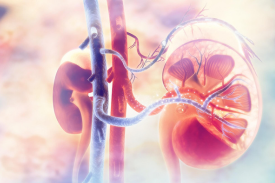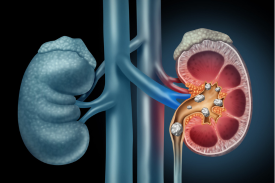The kidneys are essential organs in the body responsible for filtering waste products and excess fluids from the blood. They also play a crucial role in regulating blood pressure and producing hormones that promote bone health and red blood cell production. Unfortunately, many lifestyle factors can negatively impact kidney health, leading to conditions like chronic kidney disease (CKD). In this blog, we will explore the impact of lifestyle changes on kidney health and discuss some strategies to help protect and improve kidney function.
Diet and nutrition Diet and nutrition play a crucial role in maintaining kidney health. A diet high in salt, sugar, and unhealthy fats can increase the risk of high blood pressure, obesity, and diabetes, all of which can negatively impact kidney function. On the other hand, a diet rich in fruits, vegetables, whole grains, and lean protein sources can help reduce the risk of these conditions and promote kidney health. It is important to limit sodium intake and avoid processed foods, sugary drinks, and high-fat meats.
Exercise and physical activity Regular exercise and physical activity can help reduce the risk of high blood pressure, diabetes, and obesity, all of which can negatively impact kidney function. Exercise also promotes cardiovascular health, which is essential for maintaining healthy blood flow to the kidneys. It is recommended to aim for at least 30 minutes of moderate exercises, such as brisk walking or cycling, most days of the week.
Smoking and alcohol use Smoking and alcohol use are two lifestyle factors that can negatively impact kidney health. Smoking can increase the risk of high blood pressure and reduce blood flow to the kidneys. It can also increase the risk of kidney cancer. Alcohol use can also negatively impact kidney function by increasing blood pressure and causing dehydration. It is recommended to quit smoking and limit alcohol use to promote kidney health.
Stress management Chronic stress can negatively impact kidney health by increasing blood pressure and causing inflammation. It is important to develop effective stress management strategies, such as meditation, deep breathing exercises, or regular exercise, to reduce the negative impact of stress on the body.
Hydration Hydration is critical for kidney health as it helps flush waste products and excess fluids from the body. It is important to drink enough water and other fluids throughout the day to maintain proper hydration. It is recommended to drink at least 8-10 glasses of water per day, or more if you are physically active or live in a hot climate.
In conclusion, lifestyle changes can have a significant impact on kidney health. By making simple changes to diet, exercise, stress management, and hydration, individuals can help protect and improve kidney function. It is important to consult with a healthcare provider before making any significant changes to diet or exercise routines. By taking proactive steps to maintain kidney health, individuals can improve their overall health and well-being.



